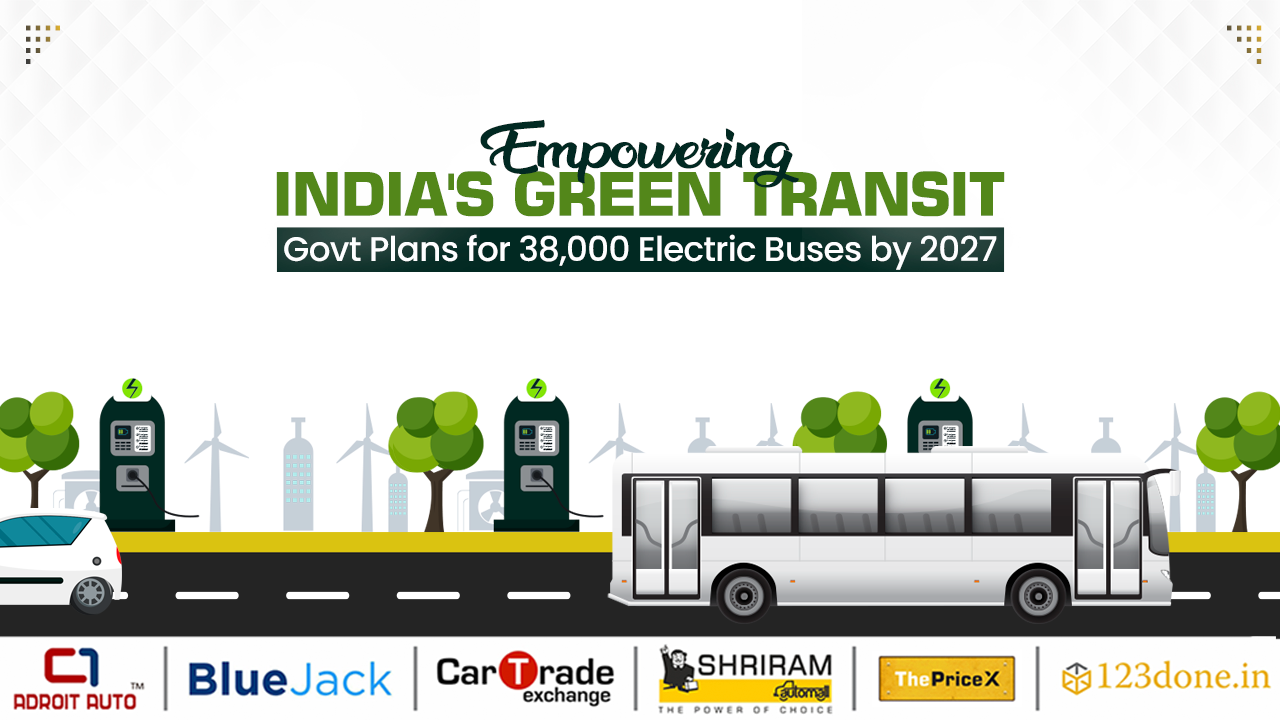India Bold Push for 38,000 Electric Buses by 2027

In a significant move towards sustainable public transportation, the Indian government is setting its sights on introducing an additional 38,000 electric buses by 2027. The driving force behind this ambitious initiative is the US-India payment security mechanism, which aims to provide Electric Vehicle (EV) Bus Original Equipment Manufacturers (OEMs) with the assurance needed to deploy these eco-friendly buses across various state transport undertakings.
This announcement holds particular importance given the recent challenges faced by a tender issued in January 2023 under the National Electric Bus Programme (NEBP) Phase-II. The tender, designed to secure 4,675 e-buses through dry lease arrangements, faced roadblocks as established automobile manufacturers refrained from bidding. Their primary concern was the absence of a payment security mechanism to safeguard their payments in the event of default by loss-making state transport undertakings.
To address this, the Indian and US governments have collaborated to establish a joint fund payment security fund. This fund will play a pivotal role in acquiring the remaining 38,000 electric buses under the NEBP, as confirmed by Dr. Hanif Qureshi, Additional Secretary, Ministry of Heavy Industries.
As part of India's broader efforts towards green mobility, the state-run Convergence Energy Services Limited (CESL) has already aggregated 12,000 electric buses under the India bus aggregation program. The program targets a total of 50,000 electric buses to contribute to India's commitment to sustainable and environmentally friendly transportation.
India's state transport undertakings have been grappling with challenges such as aging buses, mounting financial losses and low occupancy rates. According to estimates from the road transport ministry, these undertakings have suffered a combined loss of an astounding Rs 17,000 crore.
Dr. Hanif Qureshi shed light on the collaborative efforts between India and the United States during Prime Minister Modi's visit to the US. Both nations have committed to supporting the growth of electric buses in India as part of a broader strategy to decarbonize public transportation. The establishment of the joint payment security fund signifies a long-term commitment to sustainable mobility, ensuring the procurement of electric buses over the next decade.
As India marches towards a greener and more sustainable future, these initiatives showcase the nation's dedication to reducing its carbon footprint and embracing eco-friendly modes of transportation. The collaborative approach between governments and private entities emphasizes the shared responsibility of ushering in a new era of environmentally conscious mobility.
Stay up to date with Indian Automotive industry with www.samil.in

 Download Our App
Download Our App



